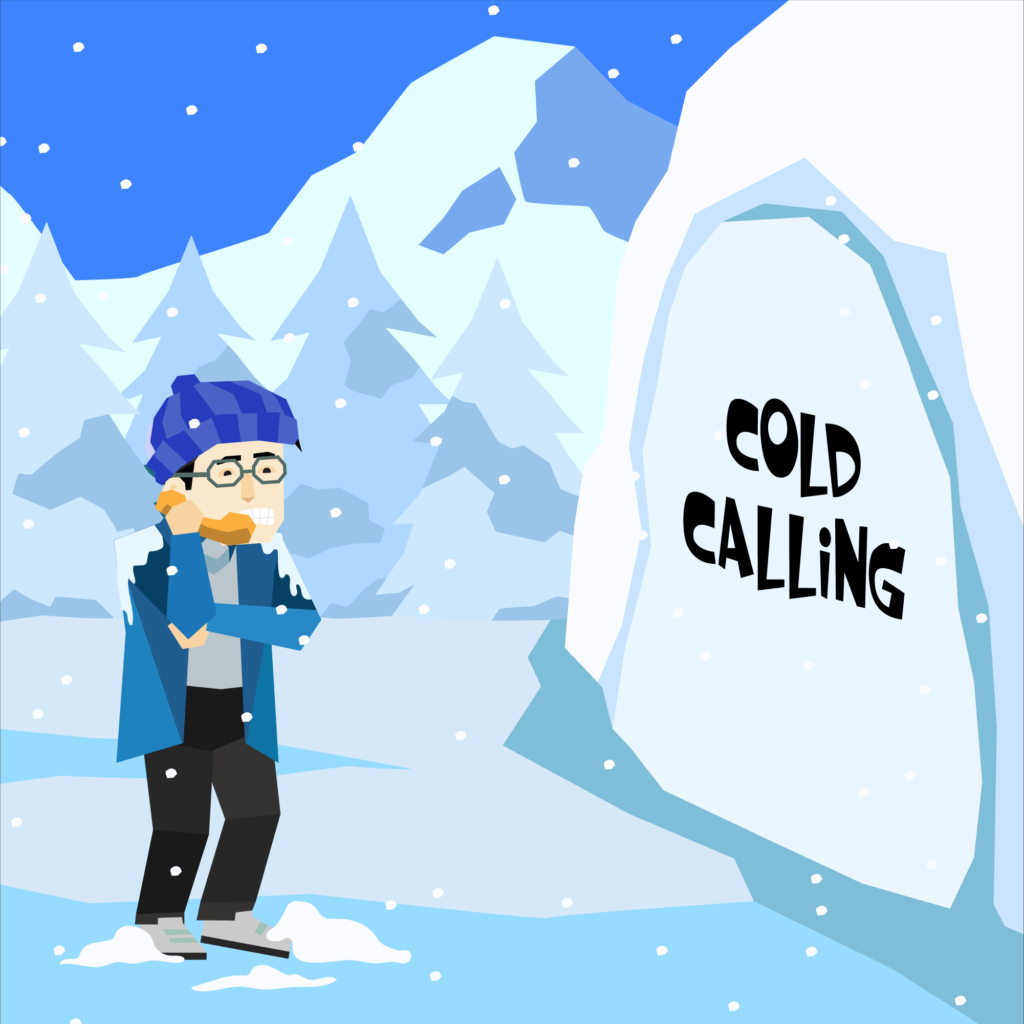
Cold calling can be one of the most annoying things in the world, particularly for a business owner.
When that phone rings, and you don’t know the number, you can’t just ignore it.
The amount of interruptions that the average business owner receives is ridiculous at times.
Even running a digital marketing agency, I still field overseas calls from people trying to sell me search engine optimization.
I remember when I was working as the in house SEO of my old company, we were sitting at position 1 for 23 key word rankings, and still we got calls from people saying
“We can get you onto the first page of Google”
The person making the calls did not even have the time or the skill to do a quick ranking assessment of the prospect that they were calling.
That truly is the coldest of cold.
Warm Calling Is Becoming Much More Common
The idea of the warm call is that you are only calling a prospect who has previously engaged with your brand (such as online, or from direct mail). It also requires that the person about to make the call does a bit of research before making the call!
I stumbled across an article written by Barbara Giamanco, from Social Centered Selling titled “Does Cold Calling Still Work” in which she simply describes the process of doing your homework in advance of calling prospects as the process that turns a cold call into a warm call.
When I think back to a cold caller calling an SEO and then trying to sell them SEO, all I can feel is a sense of irony.
That salesman could have saved himself thirty seconds with a simple google search.
My Experiences With Cold Calling
I only have three periods in my life in which I have found myself on the other end of a cold call.
I know myself now well enough that I would not take another job that involved cold calling.
I prefer to be prepared for a call, but to also have the other person prepared.
I consider the preparedness for someone to take a scheduled call as a pretty hot lead.
Inbound marketing is about gradually building a relationship with someone until they are ready to take a more direct method of communication or commitment.
My First Round of Cold Calls
The first time I was handed a list of names and numbers and told to call everyone was when I was volunteering as a coordinator for a community group.
The list was just under a thousand contacts (from memory)
I was 16 years old, and couldn’t afford the credit on my mobile phone.
I grabbed my parent’s land line and got ringing.
Probably one of the first things I noticed, is that you often must get through a ‘gatekeeper’, aka someone who answered the phone but is not the person you were looking for.
Given the list was compiled of boys and girls my age, I frequently found myself explaining who I was to a very inquisitive father after I asked for their daughter on the phone.
I grew to be quite uncomfortable making the calls, and regularly found myself hoping the person on the other end did not pick up. Yet I pushed on.
My Second Round of Cold Calls
Whilst I was at university, I found myself working in an outbound call center for the state government.
We were running a program designed to educate and ultimately alter people’s transportation routines.
The primary goal was a reduction in personal car use, a reasonable cause both economically and environmentally.
The vague attempt to make these cold calls slightly warmer was to send an introductory letter a week prior to the calls being lodged, this had limited success.
I learned a lot about the Do Not Call register in those years. Namely, that the register does not apply to a Government organization.
Huge swathes of people would get angry, frustrated, or aggressively point out that they were on the do not call register.
To which we would have a template reply that explains that the DNCR did not apply in this situation.
I don’t know who thought that it was still a good idea to run a cold calling campaign to people who have gone through the effort of making it ‘illegal’ to cold call them, and then claim governmental privilege in doing so.
This position truly cemented in me the fact that I do not enjoy being on either side of the phone for a cold call.
My Last Round Of Cold Calls
My last round of cold calls truly was the nail in the coffin for my cold calling career.
Due to my previous engagement as a Government cold caller, a business decided that they would hire me to become a cold caller. It seemed like a better gig than what I was already doing, and decided I would give it a chance.
Perhaps B2C cold calls would be better?
After only three months I threw in the towel, calculated the ROI and made a compelling argument that the campaign should be dropped.
I felt as though the campaign was actually damaging our brand, as our company name was now being associated with an unsolicited phone call.
I even remember one irate person asking me to repeat the company name so that he could write it down, God knows what he then did with that information after he recorded it.
Why Inbound Marketing is Rendering The Cold Call a Thing of the Past
The greatest communication technology used to be the telephone, and all the data you needed was a phone book.
Communication technology has dramatically improved since the internet.
Not to mention the fact that the available data has also GREATLY increased.
You used to have three options for getting in contact with a prospect:
- Go to wherever they are and speak to them face to face
- Call them
- Send them some Mail
This is simply no longer the case.
You can introduce yourself subtly on social media, draw their attention to content you control, entice them to give you their email address, maintain a direct line of communication, and then make a more direct contact when the time is right.
Marketing is now about preparing the way for sales to come in and close the deal.
If you would like to read more about some of the key differences between marketing and sales, you can check out our free E-Book titled “The Difference Between Sales and Marketing”








